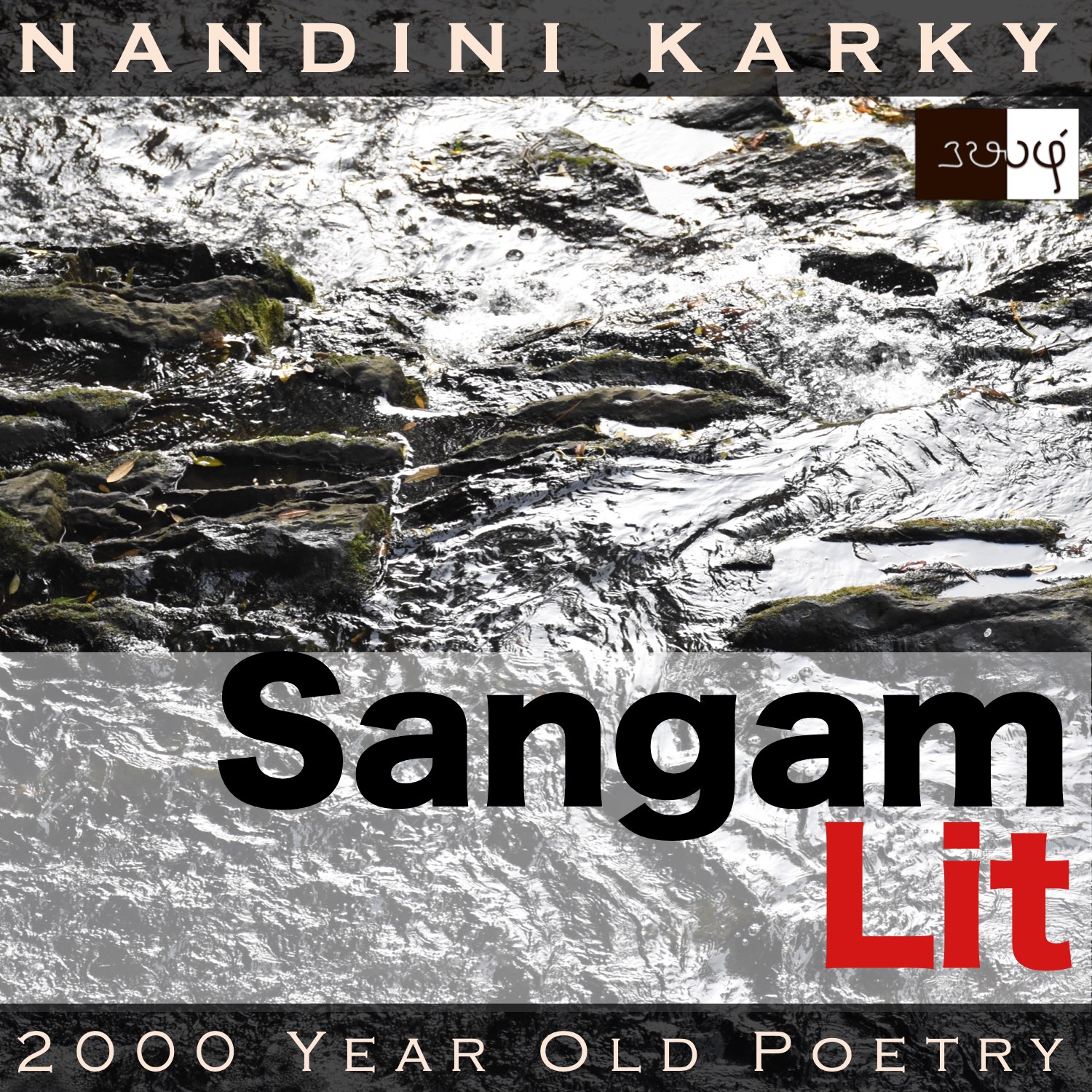Podcast: Play in new window | Download
Subscribe: Apple Podcasts | Spotify | Amazon Music | Android | iHeartRadio | TuneIn | RSS | More

In this episode, we listen to an inference about the changing nature of a person’s love, as depicted in Sangam Literary work, Kurunthogai 196, penned by Milai Kanthanaar. Set in the farmlands of ‘Marutham’, the verse speaks in the voice of the confidante to the man, refusing his request to reconcile with the lady.
வேம்பின் பைங் காய் என் தோழி தரினே,
‘தேம் பூங் கட்டி’ என்றனிர்; இனியே,
பாரி பறம்பில் பனிச் சுனைத் தெண்ணீர்
தைஇத் திங்கள் தண்ணிய தரினும்,
‘வெய்ய உவர்க்கும்’ என்றனிர்-
ஐய!-அற்றால் அன்பின் பாலே.
‘That was then and this is now’ exclaims this verse! The opening words ‘வேம்பின் பைங் காய்’ meaning ‘neem’s green unripe fruit’ leaves a bitter taste in the mouth. Pausing for a moment here, I wonder why there is no word for ‘an unripe fruit’ in English. Could it be because English did not originate in a tropical region and there was no need to differentiate between ripe and unripe fruits, whereas Tamil, blooming amidst a variety of fruits, wanted to classify the stages of a fruit as ‘காய்’ for ‘unripe’ and ‘பழம்’ for ‘a ripe one’. This distinction, we are able to see in Kurunthogai 67, in the phrase ‘வேப்ப ஒண் பழம்’ meaning ‘neem’s glowing ripe fruit’. Returning, in the phrase, we see something deliciously sweet in ‘தேம் பூங் கட்டி’ meaning ‘a cube of sweetness’ – Could it be jaggery or cane sugar that is being referred here? From tiny delights, we move on to majestic ones in ‘பாரி பறம்பு’, referring to ‘the Parambu mountains of King Paari’, who was a renowned patron king in Sangam times. Also, this ‘Parambu malai’ is known in contemporary times as ‘Piran malai’ and is located in the Sivagangai district of Tamilnadu. Next is the turn of the marker of time to appear in ‘தைஇத் திங்கள்’ talking about ‘a day in the month of Thai’, a Tamil month occurring around Jan 15th to Feb 15th , significant for its ‘Pongal’ festival. Ending with the words ‘அற்றால் அன்பின் பாலே’ meaning ‘that is the state of your love’, the verse intrigues our curiosity.
Bitterness of the unripe neem fruit and the sweetness of jaggery paint contrasting pictures here. The context reveals that the man and lady were leading a married life when the man took to keeping the company of courtesans. After a while, the man realises the mistake in his ways and intends to reconcile with the lady. To this end, he seeks the confidante’s help. Hearing his request, the confidante says to him, “When my friend gave a green, unripe neem fruit, you called it, ‘a cube of sweet jaggery’. Now, even when she gives the cool, clear waters from the pools of Paari’s Parambu mountains, gathered on a pleasant day in the month of ‘Thai’, you call it, ‘hot and bitter’. O lord, such is the nature of your love!” With these words, the confidante rejects the man’s plea to be reunited with his wife by describing how the man seemed to have changed in his love for the lady.
So much to taste in this verse! The confidante starts by talking about a moment in the past. At this time, when the lady happened to give the man, an unripe neem fruit, the man savoured it and declared it to be ‘as sweet as a sugar cube’. Anyone who knows about the neem tree will know that all its parts are the epitome of bitterness. At least, if the fruit where ripe, perhaps there would be some saving grace and a trace of sweetness. And yet, even though it’s an unripe fruit, just because it came from the lady’s hands, the man decided that it was the sweetest of things. After narrating this past incident, the confidante turns her attention to the now. When the lady happens to give even the cool and sweet waters from Paari’s Parambu mountains, that too collected in the month of Thai, when the water quality is at its best, the man seems to pronounce it as hot and bitter to taste. That’s how your love for the lady has changed from then to now, the confidante concludes.
Before we get to the emotions held within, doesn’t this verse make you think of modern product placements in television and movies? It makes me smile to see that flash of ‘sweet water from Paari’s mountain springs’ amidst the flow of the verse. Today’s marketing professionals can surely learn a thing or two from this seamless ancient commercial! Returning to the core theme, it’s the same lady who’s serving the man the neem fruit and the sweet mountain waters but because the man’s love for her has changed, he sees it different, implies the confidante. The psychology of love tells us that when in the first gush of love, whatever the other does, appears to be the best. But when time has passed and the novelty has faded, there would be nitpicking amidst the best of the best that the other does. Countless love songs through the ages speak of this! It’s this fall of love, that the confidante sketches with her words. For if his love hadn’t changed, would the man have left the lady for a courtesan and hurt her so, the confidante questions. A striking reminder to all of us that we must often look back to the early stages of our relationships to see who we were and what pulled us to the other then, to savour the continuing sweetness of togetherness, whether life hands out a neem fruit or sweet spring water!




Share your thoughts...